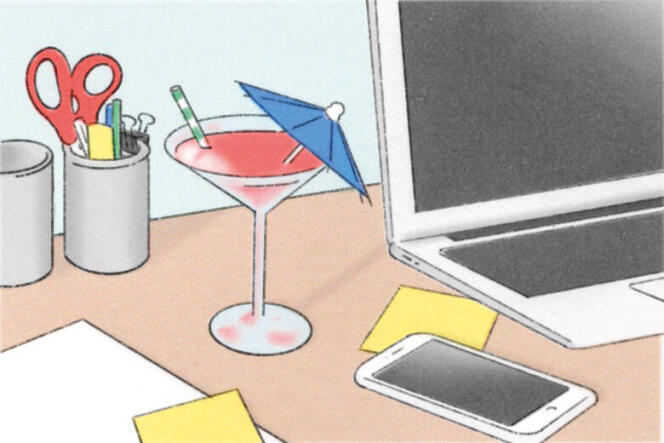


If there's one thing that has marked our passage into the so-called "new era," it's the incredible inflation in the number of exclamation points used in work emails and professional messaging platforms. In the old days − the "bygone era," if you will − business communication had as much allure as a notarized deed, and it wouldn't have occurred to anyone to punctuate banal announcements like "meeting at 11 am" as if one were announcing one's EuroMillions winnings to the world. Yet a quick glance at your email inbox shows the problem: "Great, I'll send you the memo!!!," and "The stapler is in the 4th drawer from the bottom!!!" No matter how trivial, the merest exchange will now give rise to a fireworks display of exclamation points.
The symbol, which used to emphasize the importance of a particular message or the strength of the emotion associated with it (until the 18th century, it was referred to as the point of admiration), now punctuates anything and everything. In just a few years, it has gone from a scarce to an invasive use that the British have described as "bangorrhea" (repetition intended to give more "bang," or punch). So much so that a new standard has been set: If you don't use exclamation marks left and right, you'll soon be judged as cold, distant, and even ill-tempered.
This epidemic has reflected the spreading contagion within corporate messaging of the language conventions of texting and social media. These media are used for what is known as "written speech," a hybrid form of communication in which letters may be typed on a keyboard but remain nonetheless subject to the stylistic and nonverbal cues of spoken language. As a result, the smile that you used to exhibit to indicate enthusiasm in face-to-face conversation has been replaced in virtual exchanges by exclamation points and/or emojis.
A typographical divide between the generations has begun to emerge around this practice: While baby boomers might view an excess of "!" as a sign of false over-enthusiasm, younger people tend to see it as a way of adding pep to their messages and stressing their sincerity. In text messages, a simple period can suggest to younger folks that the exchange it punctuates may not be entirely straightforward, as highlighted by a study published in 2016 in the journal Computers in Human Behavior. Punctuation carries with it evolving social values that must be taken into account lest we be seen as the last of the phonies.
There is another plausible theory. As evidenced by its overuse on X by Donald Trump, the exclamation point − which can also be used to punctuate a command − could also be wielded in service of an authoritarian goal. By activating our brain's alarm system, the "!" would be a simple way of hacking attention, imposing one's ideas, or having the final word. A combination of these two hypotheses could indicate that the exclamation point has become the most blatant sign of the rampant toxic positivity that has thrived in the corporate world, where upbeat sentiments are no longer just an option but have become a mandate that we impose on others as much as on ourselves. Between two exclamatory bursts, ponder it a bit. On that note, have a nice day!!!
